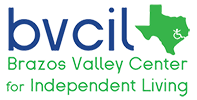Post from: EmpowerAbility® , LLC
Participating in CPR training with a disability…..
This past weekend I did my annual health care professional ritual of completing my CPR re-certification. Although, this time it was not so typical as I started to wonder, could Bill (my handsome husband, who happens to have a C5-C6 incomplete spinal cord injury) perform CPR on me in the event of an emergency? What accommodations would the Red Cross and/or the American Heart Association make for those who want to be CPR certified and have a disability?
I spoke with a Red Cross representative from my area to get some clarification. There are three main critical objectives that need to be met for CPR certification 1-to get on the floor, 2-To be able to give an effective breath (making the chest rise) and 3-to be able to give effective chest compressions. If a participant is able to complete these three main critical objectives, as well as pass the written exam, they will receive the CPR certification card.
The representative reviewed that modifications can be made, as long as the three main critical objectives are still met. For example, a woman with a congenital birth defect that had left her without forearms or hands recently took the course and completed the certification. The Red Cross representative reported that she was able to get on the floor, she was able to give effective breaths, but instead of using her hands to complete the chest compressions, she was able to effectively complete the chest compressions with her foot.
If, however, a person is unable to complete any of the three main critical objectives, a certification card cannot be issued. Although certification would not be obtained, auditing the class to learn the information is still a viable option. Learning this information would allow you to instruct others to help with CPR, in case of an emergency.
I thoroughly understand the need for these critical objectives to be met to provide effective CPR, but am delighted to know that modifications can be made. If you are interested in learning more about what accommodations can be made for completing CPR with a disability, please contact the American Red Cross and/or the American Heart Association for details.
Save a life, learn CPR!
